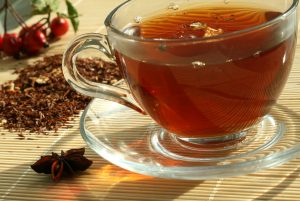Britain has historically had a love affair with tea. In fact it was the British who introduced it to India in order to compete with the Chinese production of it. According to the recent Cost of Tomorrow report, people between the age of 50 and 64 spend £31.20 on tea annually, but for millennials this drops to £10.40. So are we drinking less tea? If so what are we drinking instead?


Currently, the average household spends £1,475 on tea over a lifetime and £2,585 on coffee over the course of their lives, so coffee has definitely overtake in the hot drink department. Soft drinks have definitely increased with smoothies, fruit juices, fizzy drinks and milk shakes being more popular now. All of these contain more calories and sugar than your average cuppa.
Sadly, coffee shop culture means we spend a lot on the treats that go with that cuppa. The Cost of Tomorrow report suggested we spend £11,520 on cakes, buns and biscuits to complement our favourite hot drinks; 4.2% more than we spend on fresh fruit (£11,034) over a lifetime.
So the take home message on National Tea Day 2017?
- It is perfectly safe to drink 2-3 standard caffeinated cups (400mg) of tea or coffee a day. If you are concerned about the caffeine then try herbal/fruit tea or decaff versions.
- Tea contains polyphenols and there are health benefits stated for dental health, diabetes, heart disease and cognitive function.
- Tea is a natural sources of fluoride so has benefits for dental health.
- The polyphenols in black tea are thought to be responsible for the links between tea and reduced risk of cardivascular disease.
- Soem studies show a reduced risk of diabetes with 2-3 cups of tea a day (presumably tea without sugar).
- With less calories and sugar (if you don’t add it by the spoonful) tea is a good option to be drinking, better than a fizzy drink.
- Tea does hydrate you. Studies have shown it to be equivalent to water!
- Tea provides calcium (from the milk), manganese and potassium as well as flavanoids which are potent antioxidants.
Now who is for a cuppa?